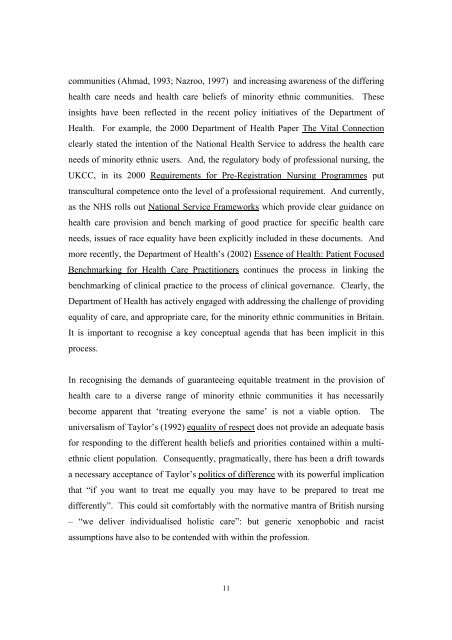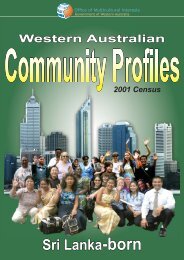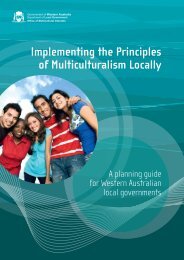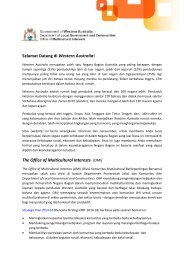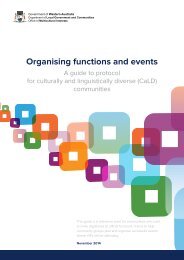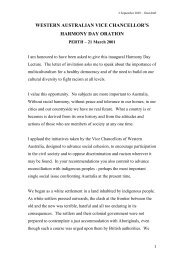Doing good by stealth, whilst flirting with racism - Office of ...
Doing good by stealth, whilst flirting with racism - Office of ...
Doing good by stealth, whilst flirting with racism - Office of ...
You also want an ePaper? Increase the reach of your titles
YUMPU automatically turns print PDFs into web optimized ePapers that Google loves.
communities (Ahmad, 1993; Nazroo, 1997) and increasing awareness <strong>of</strong> the differing<br />
health care needs and health care beliefs <strong>of</strong> minority ethnic communities. These<br />
insights have been reflected in the recent policy initiatives <strong>of</strong> the Department <strong>of</strong><br />
Health. For example, the 2000 Department <strong>of</strong> Health Paper The Vital Connection<br />
clearly stated the intention <strong>of</strong> the National Health Service to address the health care<br />
needs <strong>of</strong> minority ethnic users. And, the regulatory body <strong>of</strong> pr<strong>of</strong>essional nursing, the<br />
UKCC, in its 2000 Requirements for Pre-Registration Nursing Programmes put<br />
transcultural competence onto the level <strong>of</strong> a pr<strong>of</strong>essional requirement. And currently,<br />
as the NHS rolls out National Service Frameworks which provide clear guidance on<br />
health care provision and bench marking <strong>of</strong> <strong>good</strong> practice for specific health care<br />
needs, issues <strong>of</strong> race equality have been explicitly included in these documents. And<br />
more recently, the Department <strong>of</strong> Health’s (2002) Essence <strong>of</strong> Health: Patient Focused<br />
Benchmarking for Health Care Practitioners continues the process in linking the<br />
benchmarking <strong>of</strong> clinical practice to the process <strong>of</strong> clinical governance. Clearly, the<br />
Department <strong>of</strong> Health has actively engaged <strong>with</strong> addressing the challenge <strong>of</strong> providing<br />
equality <strong>of</strong> care, and appropriate care, for the minority ethnic communities in Britain.<br />
It is important to recognise a key conceptual agenda that has been implicit in this<br />
process.<br />
In recognising the demands <strong>of</strong> guaranteeing equitable treatment in the provision <strong>of</strong><br />
health care to a diverse range <strong>of</strong> minority ethnic communities it has necessarily<br />
become apparent that ‘treating everyone the same’ is not a viable option. The<br />
universalism <strong>of</strong> Taylor’s (1992) equality <strong>of</strong> respect does not provide an adequate basis<br />
for responding to the different health beliefs and priorities contained <strong>with</strong>in a multiethnic<br />
client population. Consequently, pragmatically, there has been a drift towards<br />
a necessary acceptance <strong>of</strong> Taylor’s politics <strong>of</strong> difference <strong>with</strong> its powerful implication<br />
that “if you want to treat me equally you may have to be prepared to treat me<br />
differently”. This could sit comfortably <strong>with</strong> the normative mantra <strong>of</strong> British nursing<br />
– “we deliver individualised holistic care”: but generic xenophobic and racist<br />
assumptions have also to be contended <strong>with</strong> <strong>with</strong>in the pr<strong>of</strong>ession.<br />
11


